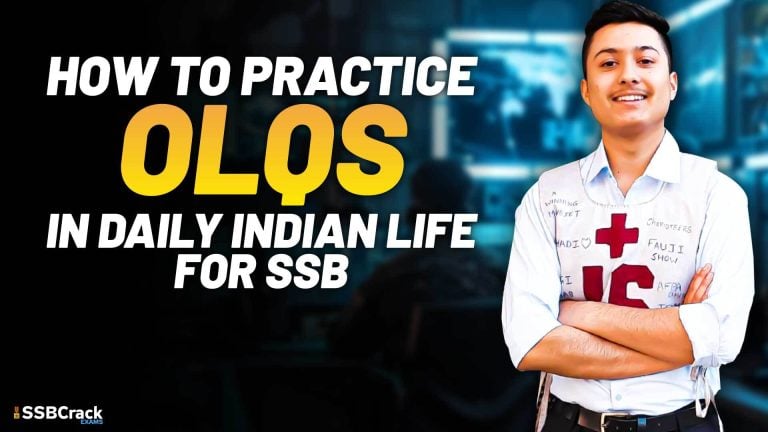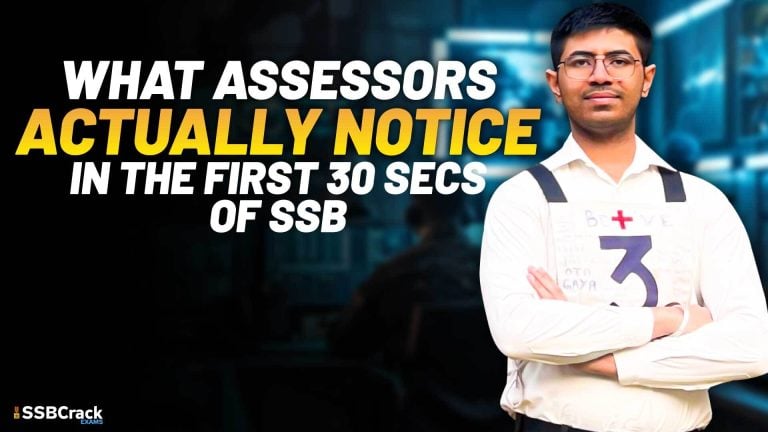Among the 15 Officer Like Qualities (OLQs) assessed in the SSB Interview, Liveliness stands out as a refreshing yet often underestimated trait. While candidates often focus on decision-making, leadership, and reasoning, liveliness is what keeps a leader energized, optimistic, and resilient under stress. In the Armed Forces, where pressure, uncertainty, and setbacks are part of daily life, liveliness brings in morale, courage, and emotional balance — qualities every officer must embody.
In this article, we will explore:
- What Liveliness means in the SSB context
- Where and how it is evaluated
- How aspirants can showcase this OLQ
- Practical ways to develop Liveliness in everyday environments like home, school, or workplace
What Is Liveliness?
Liveliness is the quality of being energetic, cheerful, optimistic, and enthusiastic — even in challenging situations. It reflects a positive outlook, quick wit, emotional resilience, and the ability to uplift the environment.
It doesn’t mean being loud or attention-seeking. A lively candidate:
- Smiles and engages positively with others
- Is enthusiastic about challenges and team activities
- Bounces back from failures or rejections without sulking
- Maintains morale and inspires others to stay motivated
- Shows lightheartedness when appropriate, without undermining seriousness
Where Is Liveliness Evaluated in SSB?
1. Personal Interview (PI)
- This is where liveliness is most directly evaluated
- The Interviewing Officer may challenge or surprise you to observe your emotional response
- Your tone, body language, humour, and spontaneity reveal how lively and emotionally composed you are
2. Group Discussion (GD) & Group Planning Exercise (GPE)
- Do you stay positive and enthusiastic even during disagreements?
- Are you boosting group morale and showing team spirit?
3. GTO Outdoor Tasks (PGT, HGT, FGT, Snake Race, Command Task)
- Liveliness shows in how you motivate your team, laugh off minor setbacks, and keep the group spirit alive during physically demanding tasks
4. Psychological Tests
- TAT: Is your hero enthusiastic, spirited, and hopeful in adverse conditions?
- SRT: Do your responses show composure, humour, or enthusiasm despite problems?
- SDT: Do others describe you as someone with high energy, cheerfulness, or a can-do attitude?
How Is Liveliness Evaluated?
SSB Assessors observe:
- Facial expressions and tone of voice — Are you expressive and emotionally balanced?
- Response to stress or curveball questions — Do you break down or maintain positivity?
- Group participation style — Do you bring cheerfulness and energy to the group?
- Reactions to mistakes or failures — Are you sulky, or do you handle it sportively?
They also consider whether your liveliness makes others feel comfortable and motivated, which is critical for group functioning in the military.
How to Showcase Liveliness in the SSB Interview?
✔️ In the Interview:
- Smile, sit confidently, and maintain relaxed body language
- Answer with warmth, and use light humour if appropriate
- Accept your mistakes with a positive attitude (“I took it as a learning”)
- Don’t sound robotic or over-rehearsed
✔️ In GD, GPE & GTO Tasks:
- Show enthusiasm for participation
- React to others’ ideas with encouragement or humor
- Keep the group active and hopeful, even if a task seems tough
- Cheer your team in the Snake Race or applaud when someone tries something new
✔️ In Psychological Tests:
- TAT: Make your protagonist hopeful, energetic, and quick to act
- SRT: Respond with solutions that show calm confidence and optimism
- SDT: Include lines like “My friends consider me a source of positivity and motivation”
How to Develop Liveliness in Daily Life
At Home:
- Engage Actively in Family Conversations
- Share ideas, jokes, or daily stories with spirit
- 🔹 Boosts conversational energy and optimism
- Uplift Family During Difficult Times
- Be the one who brings perspective and lightness in tense moments
- 🔹 Builds emotional resilience
At School/College/University:
- Participate in Cultural Activities
- Join drama, music, dance, or event-hosting to develop spontaneity
- 🔹 Improves stage presence and cheerfulness
- Be a Positive Group Member
- Encourage teammates, celebrate small wins, add humor tactfully
- 🔹 Builds team morale influence
- Volunteer to Help Others Without Complaints
- Take initiative and do so with a smile
- 🔹 Shows natural energy and spirit
At Workplace/Internship:
- Maintain a Positive Attitude During Stress
- Deadlines approaching? Stay calm and joke lightly to keep the team focused
- 🔹 Helps you emerge as a stress-neutralizer
- Participate in Informal Interactions
- Talk to colleagues, ask how their day is going, spread cheer
- 🔹 Develops soft leadership and team building
- Stay Energetic and Fresh in Long Meetings/Projects
- Use body language and ideas to keep energy high
- 🔹 Enhances presence and approachability
Final Thoughts
In the SSB, your Liveliness reflects your psychological resilience, team-compatibility, and leadership presence. It’s the difference between a dull participant and a vibrant leader who inspires action, even when the chips are down.
You don’t have to fake it — just bring out your natural optimism, enthusiasm, and energy in a controlled and respectful manner. Remember, a lively candidate doesn’t just pass tests — they lift the whole group with them, and that’s what the Armed Forces are truly looking for.







